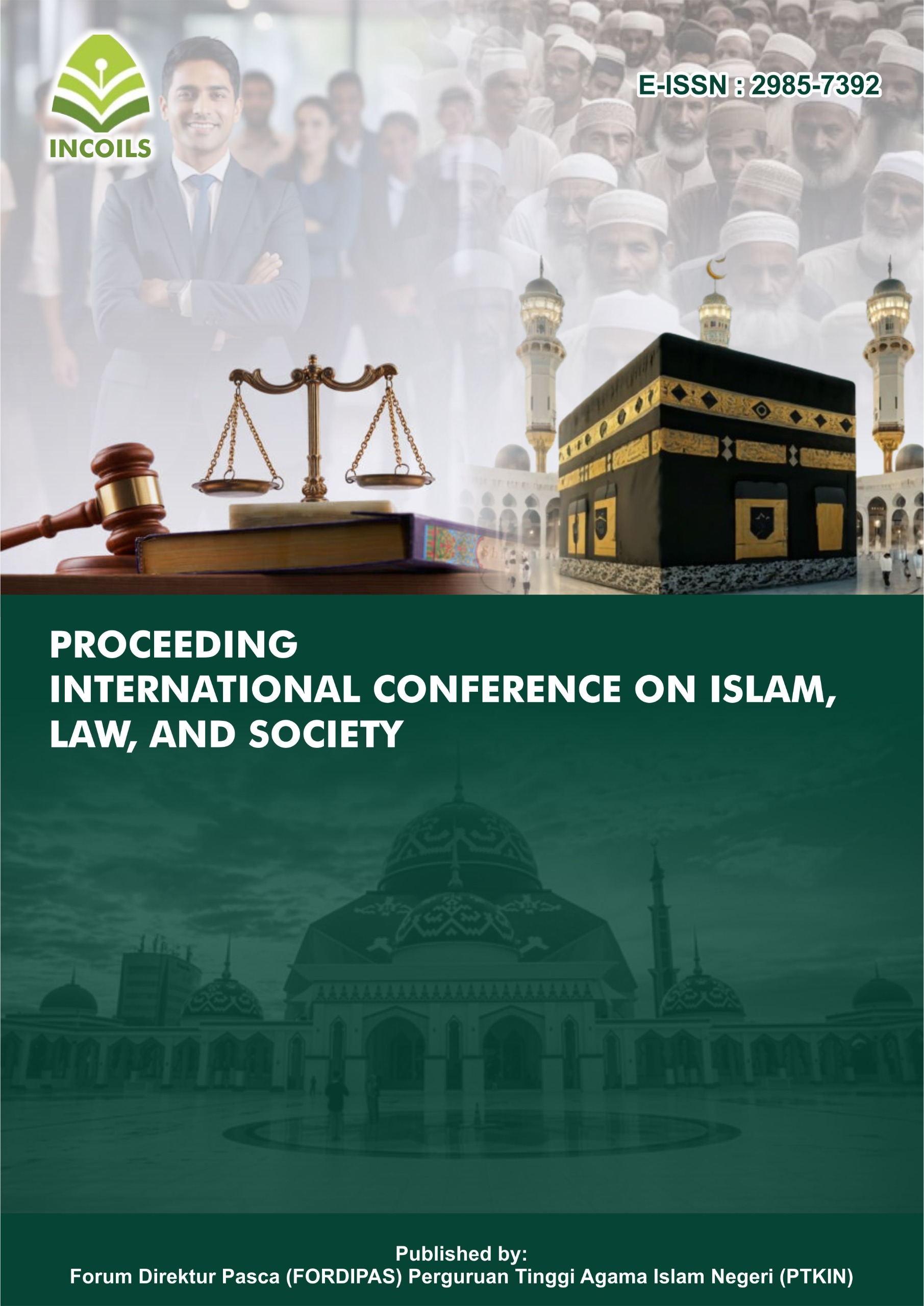Analysis of the Concept of Happiness in the Filosofi Teras Book According to Al-Farabi's Perspective
DOI:
https://doi.org/10.70062/incoils.v3i1.135Keywords:
Happiness Concept, Stoicism PhilosophyAbstract
Every human being wants to be able to achieve happiness in various ways and efforts. The concept of happiness in the Filosofi Teras emphasizes negative situations, which is different from the concept of happiness in general, which emphasizes efforts to build positive situations. The concept of happiness is interesting to study further with his analysis of Al-Farabi's perspective. The research method used in the preparation of this article is library research. The data used in this study are documents. The documents used in this study, namely the book Philosophy of Teras by Henry Manampiring and Tanbih al-Sa'adah by Al-Farabi, were the main data sources in this study. Secondary data sources in this study are several books, articles, and journals that have similarities in discussion with research. The data analysis used in this research is content analysis. The results of the study show that the concept of happiness in the Filosofi Teras book has coherence with Al-Farabi's perspective in the Tanbih al-Sa'adah book, in which there are four virtues of the concept of happiness, namely theoretical virtues, thinking virtues, moral virtues and creative virtues. The primacy of thinking is the main discussion in the concept of happiness in the Filosofi Teras book by Henry Manapiring.
References
Abraham, Firda. “Pemanfaatan Media Online Terhadap Interaksi Sosial Masyarakat Media Online Utilization As Community’s Social Interaction.” Jurnal Penelitian Pers Dan Komunikasi Pembangunan 18 (2014): 173.
Al-Farabi. Tahshil Al-Sa’ādah. Yogyakarta: Pustaka Pelajar, 2005.
Al-Farabi, Abu Nashr. Risalah Tanbih ‘Ala Sabil as-Sa’Adah. Amman: Universitas Yordania, 1987.
Anwar, Fahmi. “Perubahan Dan Permasalahan Media Sosial.” Jurnal Muara Ilmu Sosial, Humaniora, Dan Seni 1 (2017): 140.
Astuti, Livia. “Kontribusi Media Sosial Terhadap Perilaku Keseharian Remaja.” Jurnal Pendidikan Pembelajaran Pemberdayaan Masyarakat 2 (2020): 148.
Hatta, M. Alam Pikiran Yunani. Jakarta: Tutamas Indonesia, 1980.
Madkour, Ibrahim. Filsafat Islam: Metode Dan Penerapan. Cetakan ke. Jakarta: PT. Raja Grafindo Persada, 1996.
Mahmud. Metode Penelitian Pendidikan. Bandung: CV Pustaka Setia, 2011.
Manampiring, Henry. Filosofi Teras. Jakarta: Kompas, 2019.
Muskinul, Fuad. “Psikologi Kebahagiaan Manusia.” Jurnal Komika 1 (2015): 114.
Najati, Muhammad Ustman. Jiwa Dalam Pandangan Para Filosof Muslim. Bandung: Pustaka Hidayah, 1993.
Sari, Milya, and Asmendri. “Penelitian Kepustakaan Library Reseacrh Dalam Pendidikan IPA.” Jurnal Natural Science 6 (2020): 44.
Subhi, Ahmad Mahmud. Al-Falsafah Al-Akhlaqiah Fi Al-Fikr Al-Islamy. Mesir: Dar al-Ma’arif, n.d.
Tibry, Ahmad. Konsep Bahagia HAMKA: Solusi Alternatif Manusia Modern. Padang: IAIN-IB Press, 2006.
Downloads
Published
How to Cite
Issue
Section
License

This work is licensed under a Creative Commons Attribution-ShareAlike 4.0 International License.







